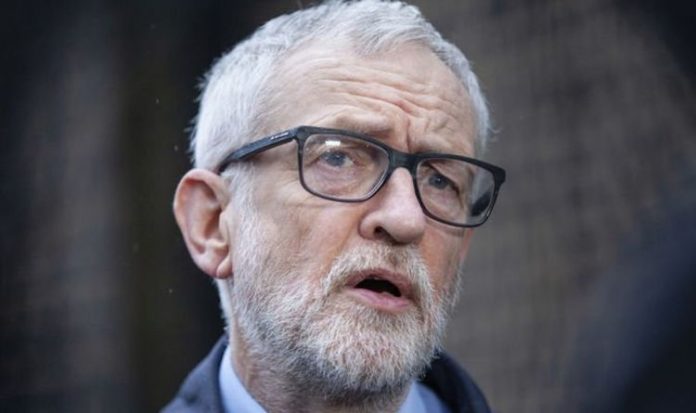Ruth Smeeth is today at the forefront of the battle for freedom of speech as the chief executive of Index on Censorship but she warns a long-term fight awaits to deal with anti-Jewish prejudice in Britain. The former Stoke-on-Trent North MP was deluged with hate messages during her time in Parliament and does not hide her dismay at how former leader Mr Corbyn responded to the crisis of anti-semitism on the Left. She said: “The thing I have found so difficult over the last few years is that Jeremy Corbyn’s leadership empowered people to think that anti-semitism was fair game, or that Jews were fair game and that’s a generational issue… I never thought I’d experience or feel anti-semitism at the level that I have in my lifetime because I thought that had been an issue for my grandparents and my parents.
“That is now squarely not the case. This will be a long-term political fight, an anti-racism fight.”
Ms Smeeth, who will this week appear before the Parliament’s human rights committee as part of its investigation into freedom of expression, stresses that education is “key” to tackling all forms of racism.
She said: “You don’t change people’s hearts and minds by just telling them they are wrong. You need to explain why something would be hurtful, why it’s not true and then move on.”
Ms Smeeth will this week appear before MPs and Lords in her new role as proposals affecting freedom of speech are considered in both Westminster and the Scottish Parliament. She is concerned that well-intentioned laws could end up restricting freedom of expression.
“We’re not having a conversation as a country or as a society about what free speech should look like,” she said. “We’re just trying to regulate and legislate speech and that doesn’t work.”
A particular concern is that social media companies should not permanently delete images of atrocities for fear of facing legal action. She argues a “digital evidence locker” should be created so images can be removed from public sight but stored for potential use in war crimes prosecutions.
Cautioning against restricting free speech in order to counter falsehoods about vaccines, she said: “[It] forces the conversation underground and there are no moderating voices.”







